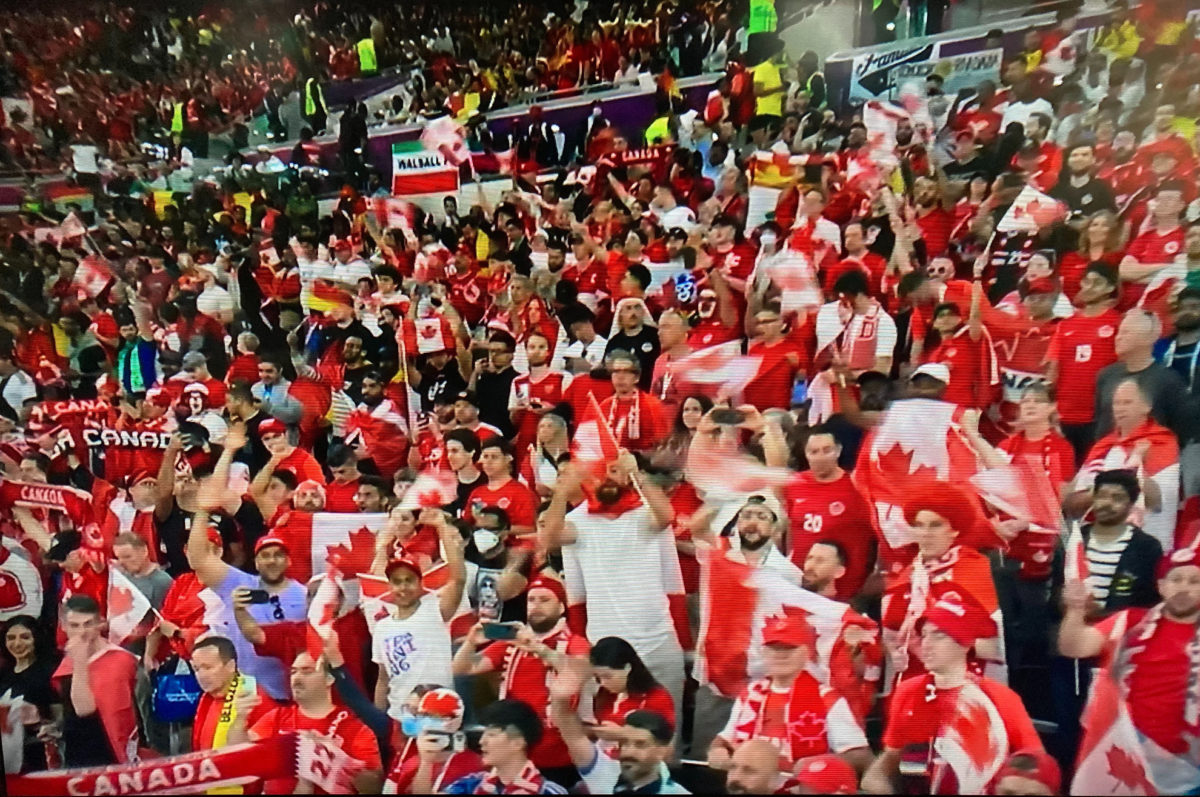It’s always been easy to lampoon the mix of politics and sports, like the infiltration of NFL football with Cold War rhetoric in the 1960s (the long bomb, the blitz). In the 1971 film Bananas, Woody Allen had Howard Cosell from “Wide World of Sports” broadcast a political assassination — “it’s all over for El Presidente!” — from the “little dictatorship of San Marcos in Latin America.”
It’s also easy to decry the manipulation of sports by politicians and governments, from the 1936 Berlin Olympics to today’s World Cup. It puts fans in a terrible position. Take Iran and the rage at the regime there. As a nurse whose son “loves” his country’s team said, “I wondered where I had made that huge mistake in bringing him up. How could he back the mullahs’ team?”
This is a hopeless dilemma for fans who love their country and their team. I once tried hoping the Blue Jays wouldn’t win a World Series while Brian Mulroney’s government were pushing a free trade deal with the U.S. Why? I could picture him crowing, “This shows we can play in the American League and win!”
Those stakes were high enough, but Iran’s are immensely higher. Ordinary people want a way to express love of country without having to commit to an odious regime. Of course the mullahs try to co-opt those emotions. “May God make [the team] happy,” said Ayatollah Ali Khamenei, Iran’s supreme leader. It also serves them to have outlets for popular anger. It gets way too confusing. I once had a director of a play of mine about the Montreal Canadiens try ending it with players angrily stripping off their uniforms and equipment — not to show contempt for hockey, but for how commercialism and professionalization distort it.
Try explaining that. Poor fans, poor players, poor audience, poor country.
I also find myself wondering if we make a mistake — full of good intentions and love of sports — by trying to separate the politics from the games.
Back when I was a grad student, I was impressed by Dutch historian Johan Huizinga’s 1938 book, Homo Ludens: A Study of the Play-Element of Culture. He dared to say that how a society plays reveals more than stuff like class or institutions. That’s partly because play is done freely, so it shows what people truly care about and desire. Huizinga felt that forms of play actually generate cultures and societies, but I always found the metaphorical implications of play for the rest of life to be the most powerful part of his book.
In their recent book The Dawn of Everything, David Graeber and David Wengrow take the theme much farther. They argue and document how play and games may have been the origin of fundamental social forces like agriculture and politics. (I admit I’ve been living under the shadow of their book for months.)
Agriculture, they say, didn’t emerge at a particular moment, once and forever leading to effects like slavery, debt, monarchy and oppression. It coexisted for millennia with other forms of food provision. They call this phase “play farming.” Why wouldn’t people “toy” with various forms of production, this and that according to their needs and desires? At some point it took hold, but the question is why and whether that was inevitable. They offer tons of proof.
As for politics, especially the top-down, rulership type, it may’ve started in games that ended with a winner or king (like chess!), with little else at stake until borders and luxury goods developed. Societies fluctuated between different political orders for most of history, until recently settling into what we’ve got. This isn’t metaphor — it’s a real attempt to trace how we got to where we are.
I’m often embarrassed by how seriously I take what happens to the Leafs, Raptors or Blue Jays, in light of more serious things to agonize over. It lightens the guilt slightly if games are at the core of who we truly are.
This column originally appeared in the Toronto Star.



